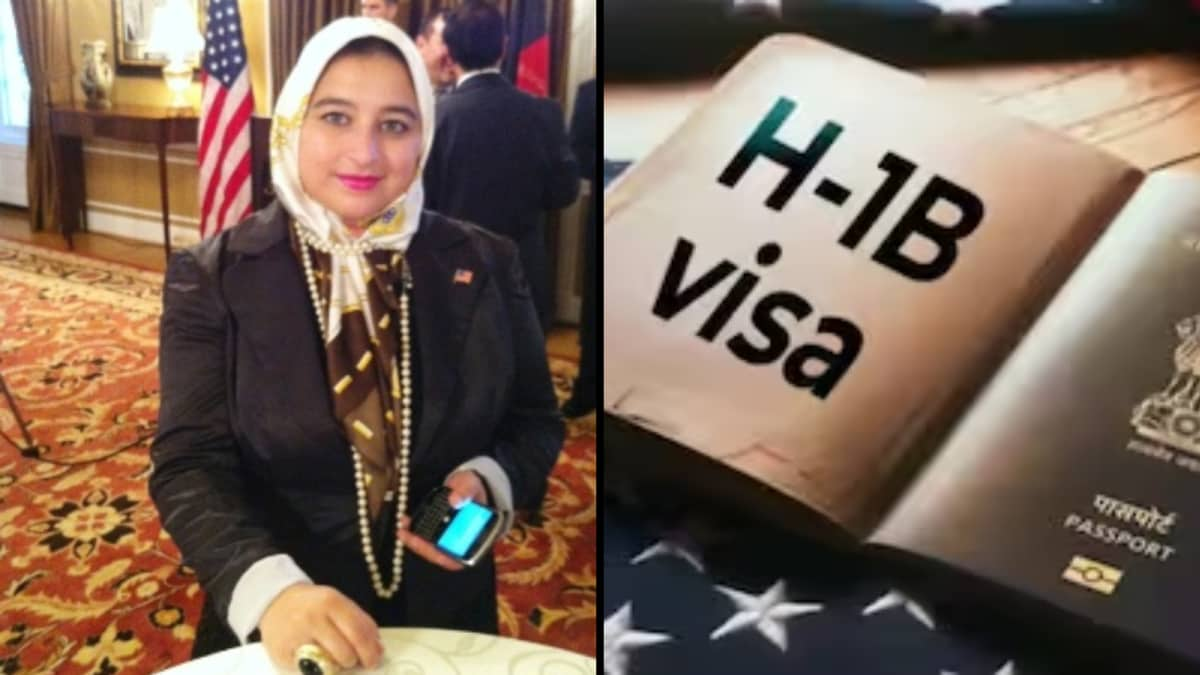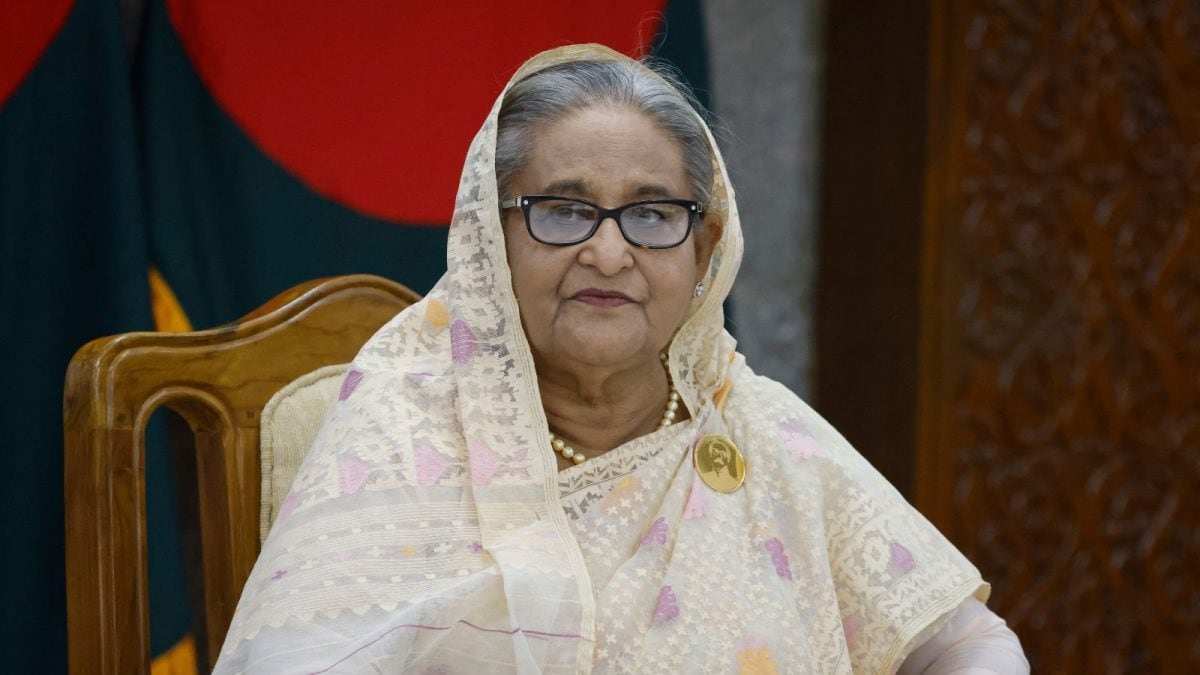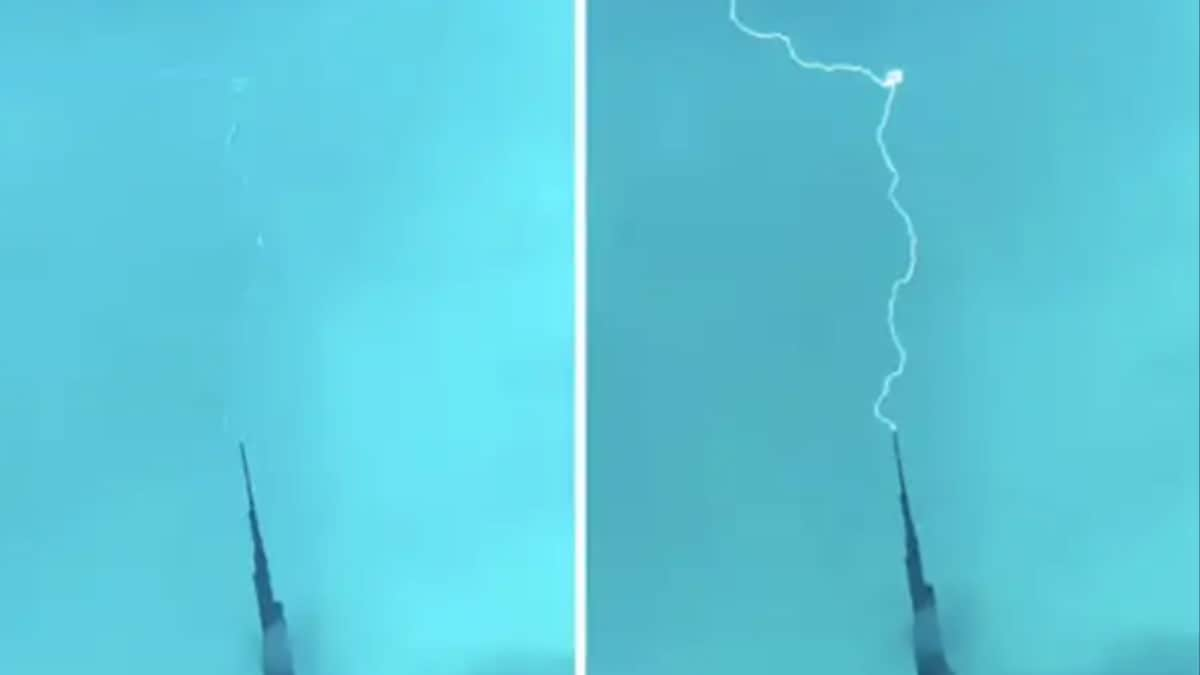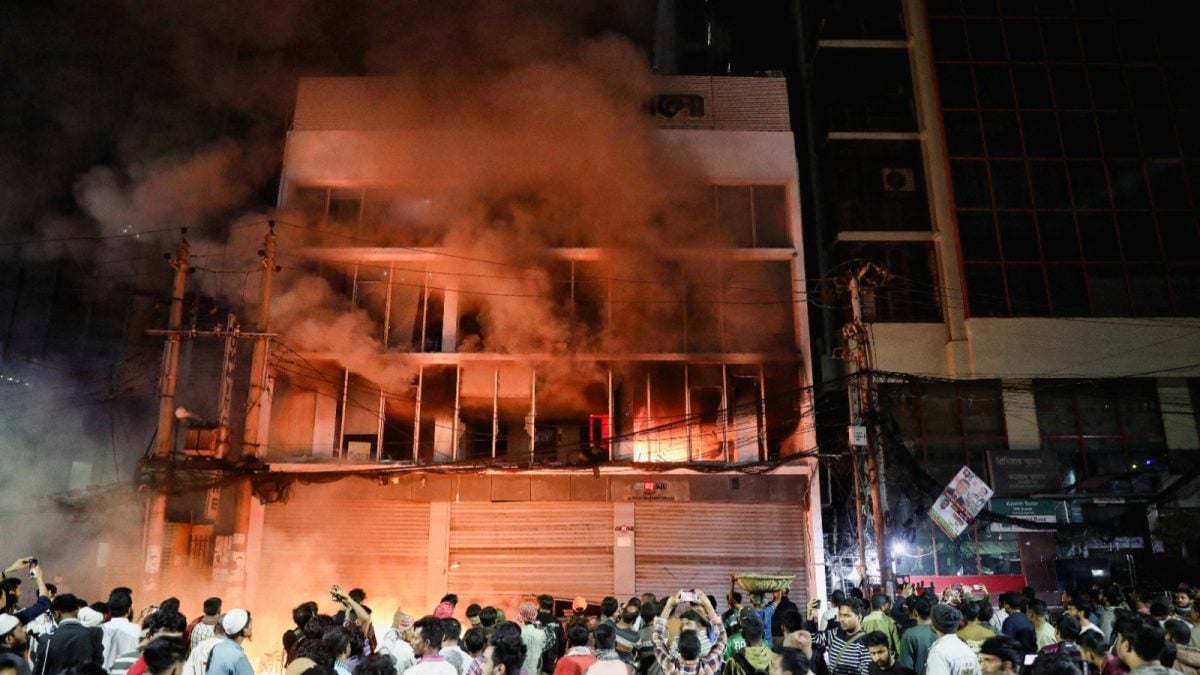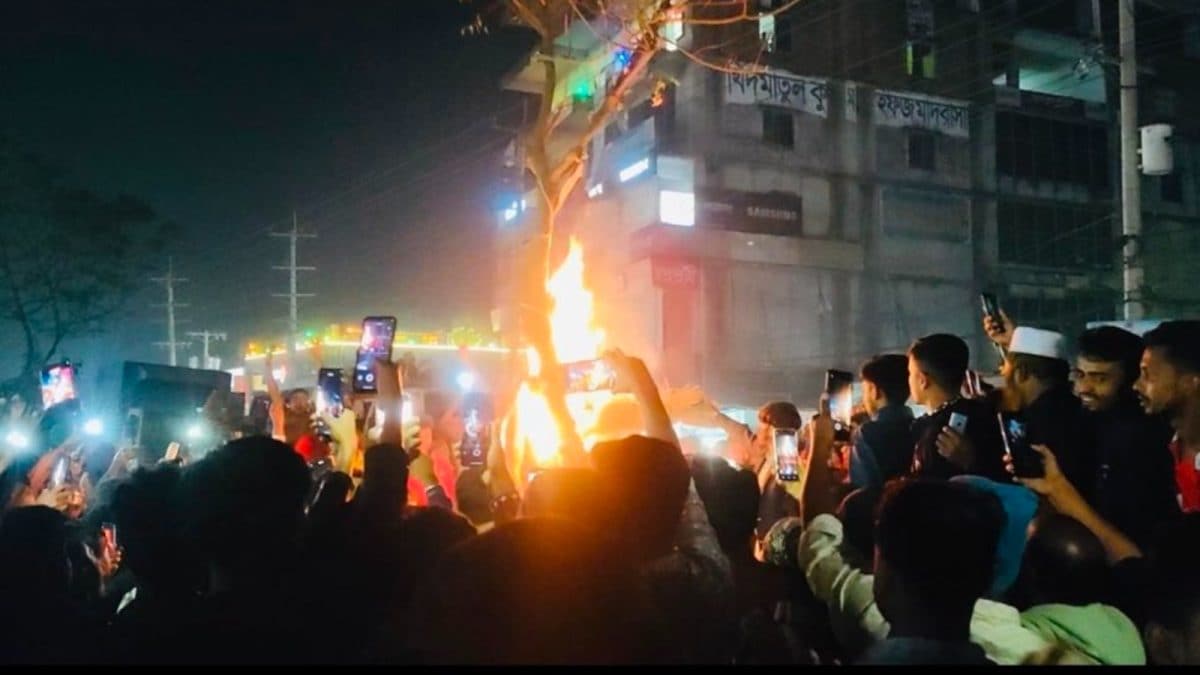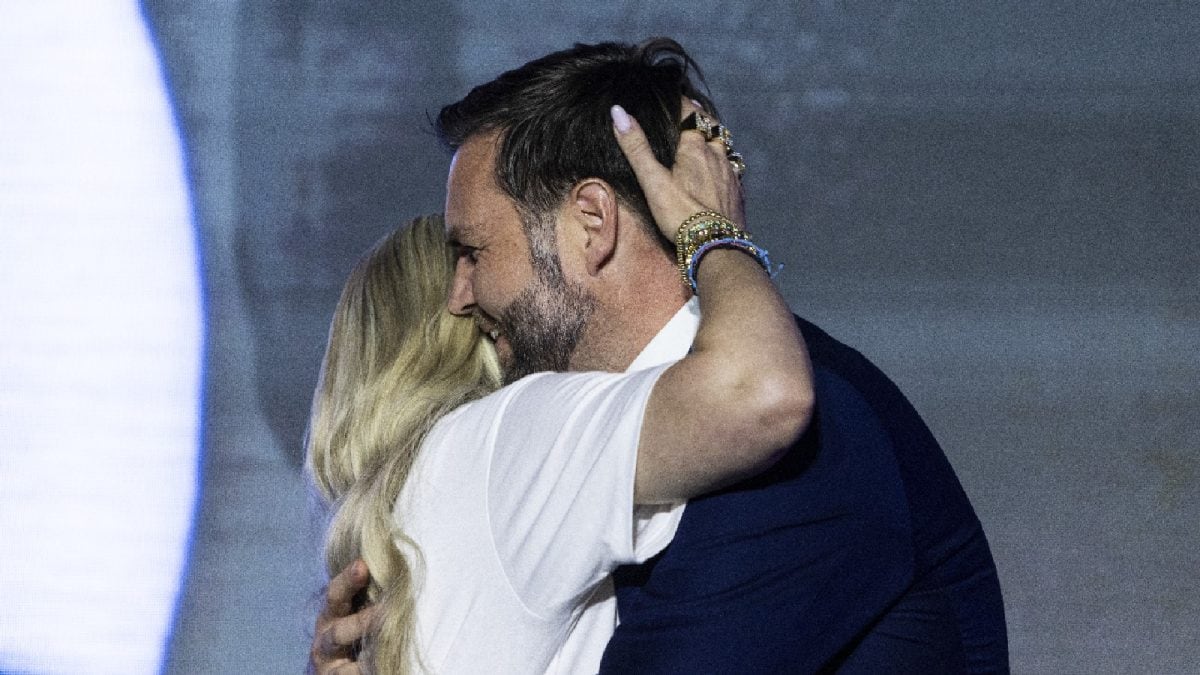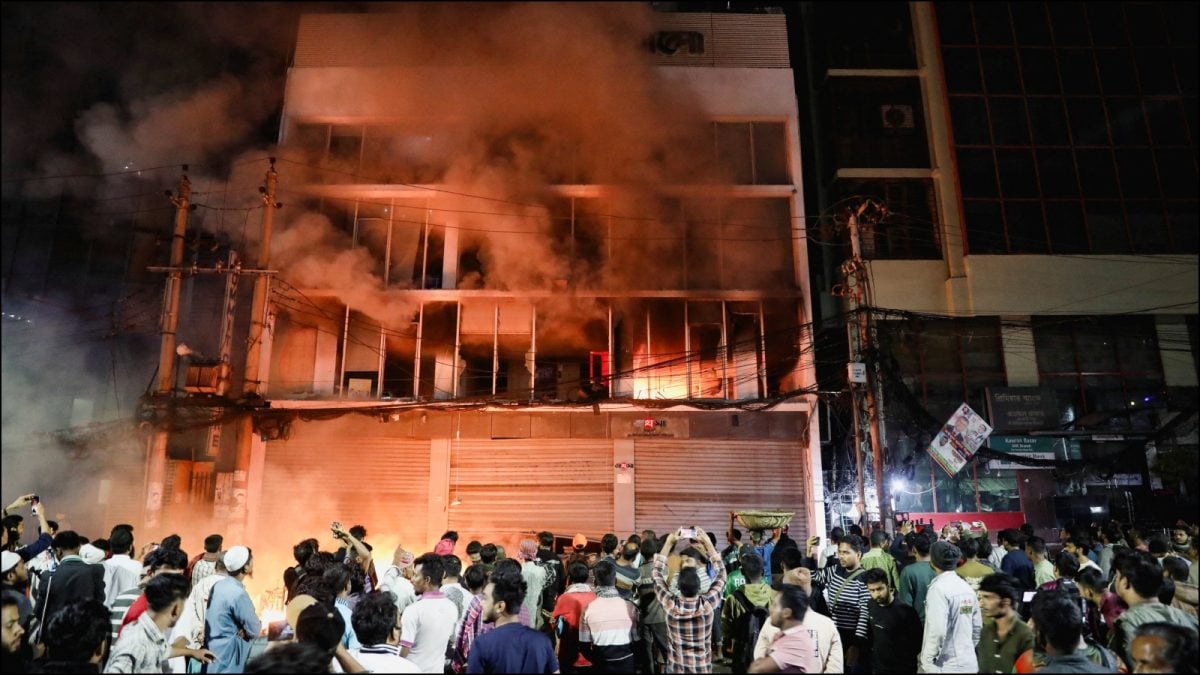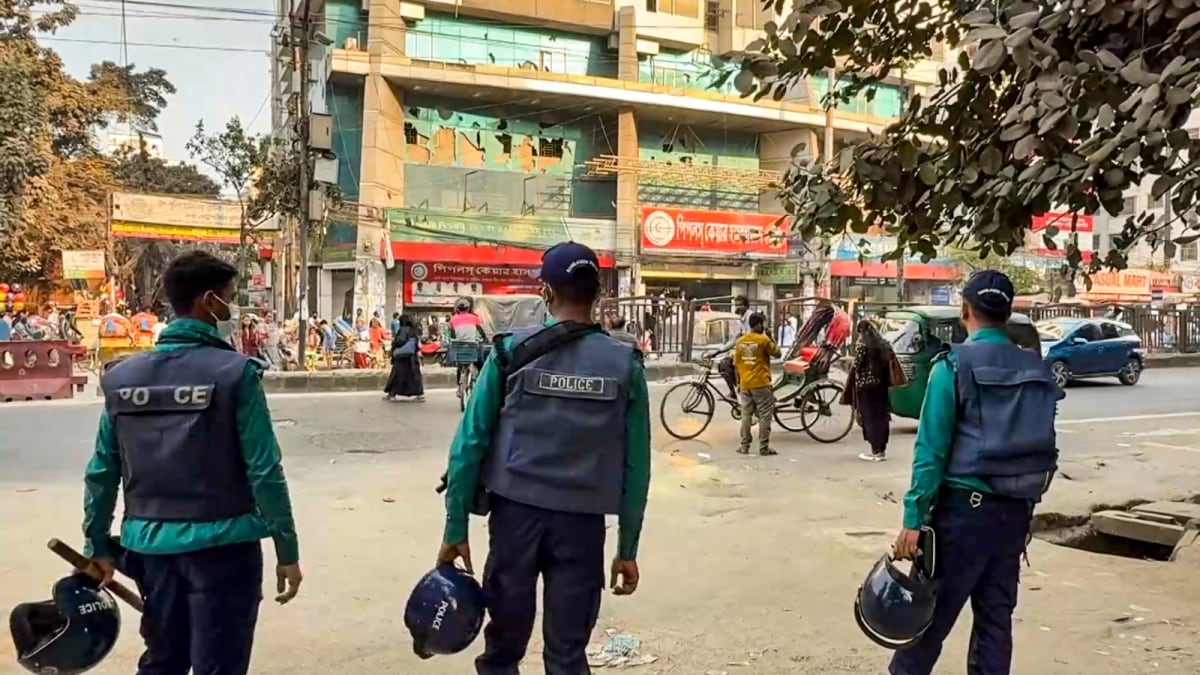Last Updated:October 23, 2025, 09:39 IST
For the first time in his second term, Trump has sanctioned Russia over the Ukraine war, targeting oil majors Rosneft and Lukoil. But is this enough to change Putin’s calculus?

Trump has previously said both Russia and Ukraine would need to cede territory to end the fighting. (File pic/Reuters )
After months of stalled diplomacy, a cancelled Trump–Putin summit, and fresh Russian attacks on civilians, the United States has imposed its first Ukraine-related sanctions of President Donald Trump’s second term. The target: Russia’s two largest oil companies, Rosneft and Lukoil.
According to the US Treasury Department, the move aims to cut off a critical source of funding for the Kremlin’s war machine. The sanctions freeze US-based assets held by the firms and bar American citizens and businesses from engaging with them. Dozens of subsidiaries are also covered under the restrictions.
The announcement came hours after Russia launched a deadly round of missile strikes on Ukrainian cities, killing at least seven people. It also coincided with a nuclear military drill conducted by Moscow, featuring launches from ground-based systems, submarines, and long-range bombers.
In a formal statement, US Treasury Secretary Scott Bessent said, “Now is the time to stop the killing and for an immediate ceasefire. Given President Putin’s refusal to end this senseless war, Treasury is sanctioning Russia’s two largest oil companies that fund the Kremlin’s war machine."
According to the BBC, Rosneft alone is responsible for nearly half of Russia’s oil production, while Rosneft and Lukoil together export approximately 3.1 million barrels of oil per day. Oil and gas account for 6 per cent of global supply and remain the single largest source of government revenue for Moscow.
Why Now? What Changed Trump’s Position?
The sanctions came after months of hesitation from Trump, who had avoided direct energy sanctions on Russia while trying to keep diplomatic options open. However, a planned summit between Trump and Russian President Vladimir Putin, scheduled to be held in Budapest, collapsed this week. Trump said that although preparations for the summit were in place, “It didn’t feel like we were going to get to the place we have to get."
He added, “I just felt it was time. We waited a long time," and further explained, “Every time I speak to Vladimir, I have good conversations and then they don’t go anywhere. They just don’t go anywhere."
How Did Europe And The UK React?
The United States’ decision to sanction Rosneft and Lukoil was mirrored by allied responses in Europe. On the same day, the European Union announced its 19th sanctions package against Russia.
This package includes:
A phased ban on Russian liquefied natural gas (LNG) importsTravel restrictions on Russian diplomatsThe blacklisting of 117 additional tankers in Russia’s “shadow fleet," bringing the total to 558 vesselsEU Commission President Ursula von der Leyen stated on X that she had spoken with Bessent and welcomed the alignment. She wrote, “With the imminent adoption of the EU’s 19th package, this is a clear signal from both sides of the Atlantic that we will keep up collective pressure on the aggressor."
Appreciated this evening’s call with @SecScottBessent and the Treasury decision to sanction major Russian oil companies in the face of Russia’s lack of commitment to the peace process.With the imminent adoption of the EU’s 19th package, this is a clear signal from both sides…
— Ursula von der Leyen (@vonderleyen) October 22, 2025
The United Kingdom had already sanctioned Rosneft and Lukoil the previous week. UK Chancellor Rachel Reeves, announcing the move, said, “There is no place for Russian oil on global markets."
Are The Sanctions Enough Without India And China?
One of the main concerns surrounding the effectiveness of these sanctions is that they do not extend to third-party countries that continue to buy Russian oil, such as China, India, and Turkey.
Edward Fishman, a former US official and now a senior research scholar at Columbia University, told Reuters, “This can’t just be one and done. The question is whether the US now threatens sanctions on anyone doing business with Rosneft and Lukoil."
Jeremy Paner, a former US Treasury sanctions investigator, added, “The absence of banks and Indian or Chinese oil purchasers in Wednesday’s sanctions means they will not get Putin’s attention."
Trump, during his Oval Office appearance, acknowledged the challenge, saying he hoped the sanctions would not need to remain in place for long. “I hope they won’t be on for long. Because the war will end," he said.
How Has Ukraine Responded?
Ukraine, which has long advocated for stronger sanctions on Russia’s energy exports, welcomed the US decision.
In a statement posted on X, Ukrainian Ambassador to the US Olga Stefanishyna said, “The decision is fully aligned with Ukraine’s consistent position: peace is possible only through strength and pressure on the aggressor using all available international tools."
Washington has imposed full blocking sanctions on major Russian oil companies—the first such action under the administration of 47th US President. This step comes after numerous attempts to give Russia a chance to begin real negotiations to end the war. The decision is fully…— Olga Stefanishyna (@StefanishynaO) October 22, 2025
Ukrainian President Volodymyr Zelenskyy has also reiterated his request for long-range Tomahawk missiles from the US. Trump, however, declined, telling reporters at the White House that it would take Ukraine “at least six months" to learn how to use them.
Will This Pressure Change The Course Of The War?
Until now, Washington had relied on diplomacy, tariffs, and indirect pressure. This is the first time in his second term that Trump has used direct economic coercion tied explicitly to the war in Ukraine, and he has chosen to strike at Russia’s energy jugular.
Rosneft and Lukoil together export over 3 million barrels of oil daily, with oil and gas forming the backbone of the Kremlin’s budget. By freezing their US-based assets and cutting off access to American markets, the US has attempted to turn off one of the most powerful engines driving Putin’s campaign.
Yet there are two structural limitations. First, these are primary sanctions. They block US firms from doing business with the listed entities. But they do not (yet) extend to secondary sanctions, which would penalise foreign entities that continue to buy Russian oil. That leaves a wide opening for Russia to simply reroute crude shipments to willing buyers outside the Western bloc.
Second, energy remains the most globally interdependent commodity. While Europe and the US may coordinate sanctions, countries like China, India, and Turkey have made it clear they won’t follow Washington’s lead.
That’s why the scale of this move matters less than the alignment behind it. As long as the sanctions coalition remains fractured, Russia’s energy sector may slow, but not suffocate.
Speaking to Fox Business, US Treasury Secretary Bessent emphasised the administration’s intent: “These are sanctions, not secondary tariffs," he said. “These are going to be substantial and powerful, and we are urging our European and G7 allies plus Canada and Australia to come along with us."
The timing of this pivot, just after the collapse of the planned Trump–Putin summit, suggests the administration is abandoning hopes of a quick negotiated peace. Instead, it is embracing a strategy of economic attrition: increasing the cost of war for Russia until Moscow becomes more flexible.
But there is no guarantee that such pressure will yield results. President Putin may interpret sanctions as a provocation, hardening his stance rather than softening it. With the Kremlin reaffirming its demand for full control of Donbas and rejecting Trump’s “freeze the frontlines" proposal, the immediate diplomatic path remains blocked.

Karishma Jain, Chief Sub Editor at News18.com, writes and edits opinion pieces on a variety of subjects, including Indian politics and policy, culture and the arts, technology and social change. Follow her @kar...Read More
Karishma Jain, Chief Sub Editor at News18.com, writes and edits opinion pieces on a variety of subjects, including Indian politics and policy, culture and the arts, technology and social change. Follow her @kar...
Read More
First Published:
October 23, 2025, 09:20 IST
News explainers After Failed Peace Talks, US Sanctions Russia's Oil Giants: Will It Change The Ukraine War?
Disclaimer: Comments reflect users’ views, not News18’s. Please keep discussions respectful and constructive. Abusive, defamatory, or illegal comments will be removed. News18 may disable any comment at its discretion. By posting, you agree to our Terms of Use and Privacy Policy.
Read More

 1 month ago
1 month ago

